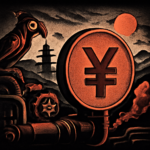SASAC strategic reorganizations
Key Points
- SASAC (国务院国资委) will push strategic, specialized reorganizations (李镇 Li Zhen) to strengthen core functions and competitiveness of central state capital and centrally‑administered enterprises.
- Innovation and strategic investment scale: central enterprises set up innovation funds of nearly ¥100 billion RMB and invested ¥8.6 trillion RMB in nine targeted strategic emerging and six future industries (Yuan Ye 袁野).
- Performance and incentives are being tightened: annual EVA rose from ¥380 billion to ¥1.2 trillion RMB; personalized performance indicators now exceed 67% and floating pay linked to performance surpasses 60% (Zhang Yuzhuo 张玉卓).
- Strong aggregate metrics: market value of central enterprise‑controlled listed companies > ¥22 trillion RMB; R&D spending > ¥1 trillion RMB for three consecutive years; total assets > ¥90 trillion RMB; per‑employee productivity up to ¥817,000 RMB.


Find Top Talent on China's Leading Networks
- Post Across China's Job Sites from $299 / role
- Qualified Applicant Bundles
- One Central Candidate Hub
Your First Job Post Use Checkout Code 'Fresh20'

Quick take
What happened:
Li Zhen (Li Zhen 李镇), deputy director of the State-owned Assets Supervision and Administration Commission (Guówùyuàn Guózī Wěi 国务院国资委, SASAC), spoke at a State Council press briefing in the “High‑Quality Completion of the 14th Five‑Year Plan” series.
Why it matters:
The briefing lays out how central state capital and centrally‑administered enterprises will prioritize strategic reorganizations, specialized consolidation, and improved capital allocation.

ExpatInvest China
Grow Your RMB in China:
- Invest Your RMB Locally
- Buy & Sell Online in CN¥
- No Lock-In Periods
- English Service & Data
- Start with Only ¥1,000

Headline goals and the big picture
SASAC plans to use systematic, forward‑looking planning and innovative measures to drive strategic and specialized restructuring of state capital and central enterprises.
The aim is to strengthen core functions and competitiveness, improve operating efficiency, and magnify the state economy’s role in supporting development.
SASAC emphasized market‑oriented reorganizations already completed during the 14th Five‑Year Plan, including combining six groups into ten enterprises and establishing nine new central enterprises.

Resume Captain
Your AI Career Toolkit:
- AI Resume Optimization
- Custom Cover Letters
- LinkedIn Profile Boost
- Interview Question Prep
- Salary Negotiation Agent

Innovation funds and strategic investment
Yuan Ye (Yuan Ye 袁野), deputy director of SASAC, reported that the total scale of innovation funds set up by central enterprises has almost reached ¥100 billion RMB ($14 billion USD).
He also said that since the start of the 14th Five‑Year Plan, central enterprises invested ¥8.6 trillion RMB ($1.2 trillion USD) in nine targeted strategic emerging industries and six future industries.
That investment level is described as significantly higher than during the 13th Five‑Year Plan.

Breakthroughs in cutting‑edge fields and industrial support
Yuan highlighted progress in areas such as:
- Integrated circuits.
- Biotechnology.
- New energy vehicles.
- Frontier breakthroughs like humanoid robots and superconducting quantum computing.
He added that capabilities underpinning industrial machine tools and new materials have steadily strengthened.
That has led to a tiered, collaborative pattern of industrial development across central enterprises.
- Integrated circuits
- Biotechnology
- New energy vehicles
- Humanoid robots
- Superconducting quantum computing
- Industrial machine tools
- New materials

EVA assessment, performance and incentives
Zhang Yuzhuo (Zhang Yuzhuo 张玉卓), director of SASAC, outlined the long‑running use of Economic Value Added (EVA) performance assessments.
SASAC began piloting EVA assessments in 2010.
Over more than a decade, annual EVA created by central enterprises rose from just over ¥380 billion RMB ($53 billion USD) to ¥1.2 trillion RMB ($168 billion USD).
SASAC said it will continue to use EVA to guide companies toward a “calculate first, invest later” approach.

Personalized evaluation and pay‑for‑performance
By 2025, the proportion of customized (personalized) performance indicators in central enterprise assessments reached more than 67%.
Personalized indicators are intended to improve the precision and scientific basis of policy support.
Floating pay for central enterprise managers linked to performance now exceeds 60% of that compensation.

Reform progress, timeline and confidence
2025 is framed as the concluding year for the deepening and upgrading of state‑owned enterprise reform.
Zhang said that reforms focused on enhancing core functions and competitiveness.
SASAC said overall progress is in line with expectations and it is confident the main reform tasks will be completed by year‑end.

Protecting and rewarding scientific talent
Zhang emphasized central enterprises are treating scientific innovation as a top priority.
SASAC is improving the innovation ecosystem and strengthening incentives.
Shareholders’ support policies will be fully effective for major tech achievements, including extra assessment points and promotion opportunities for teams or individuals who achieve major breakthroughs.
In 2025, more than 70% of state capital operation budget injections will be allocated to enterprises responsible for scientific innovation and emerging‑industry development.
SASAC also promoted equity dividends and other measures for nearly 1,000 technology‑oriented firms so that researchers who deliver results are not left as “backstage heroes.”

Key aggregate statistics reported
Here are the most important numbers central to the briefing.
- Market value of central enterprise‑controlled listed companies: over ¥22 trillion RMB ($3.1 trillion USD).
- Cumulative cash dividends since the start of the 14th Five‑Year Plan: ¥2.5 trillion RMB ($350 billion USD).
- Cumulative taxes and fees remitted by central enterprises since the start of the 14th Five‑Year Plan: more than ¥10 trillion RMB ($1.4 trillion USD).
- Transfers of state equity to the social security fund: ¥1.2 trillion RMB ($168 billion USD).
- Central enterprise R&D spending has exceeded ¥1 trillion RMB ($140 billion USD) for three consecutive years.
- R&D intensity rose from 2.6% to 2.8%.
- Annual EVA created by central enterprises rose from about ¥380 billion RMB ($53 billion USD) to ¥1.2 trillion RMB ($168 billion USD).
- Total assets of central enterprises increased from under ¥70 trillion RMB ($9.8 trillion USD) to over ¥90 trillion RMB ($12.6 trillion USD).
- Total profits rose from ¥1.9 trillion RMB ($266 billion USD) to ¥2.6 trillion RMB ($364 billion USD).
- Per‑employee annual labor productivity rose from ¥594,000 RMB ($83,160 USD) to ¥817,000 RMB ($114,380 USD).

Why investors, founders and techies should care
These moves and numbers show central enterprises are doubling down on:
- Industrial upgrading, via targeted R&D and bigger innovation funds.
- Performance‑based governance, through EVA and personalized assessments.
- Talent incentives, by linking rewards, equity, and promotion to scientific outcomes.
For investors, this implies clearer state signals on sector priorities.
For founders and tech teams, the policy shift increases opportunities for partnerships, procurement, and funding through central enterprise channels.

Actionable takeaways
- Track central enterprise partnerships in integrated circuits, biotech, and new energy vehicles.
- Monitor EVA indicators when evaluating SOE-related deals or supplier relationships.
- Look for equity‑based incentives offered to research teams inside technology‑oriented firms.
- Watch allocations of the state capital operation budget to see which enterprises rise as innovation leaders.

Context and clarity
All RMB→USD conversions are approximate and rounded, using 1 CNY ≈ $0.14 USD (date: 2025.09.17).
The briefing summarizes outcomes of the 14th Five‑Year Plan period and sets expectations for completing reform tasks in 2025.

Final note
SASAC is moving aggressively on strategic reorganizations to boost efficiency, innovation, and competitiveness across central enterprises.
SASAC strategic reorganizations
- Moving aggressively on strategic reorganizations
- Aiming to boost efficiency
- Aimed at boosting innovation
- Aimed at boosting competitiveness across central enterprises






